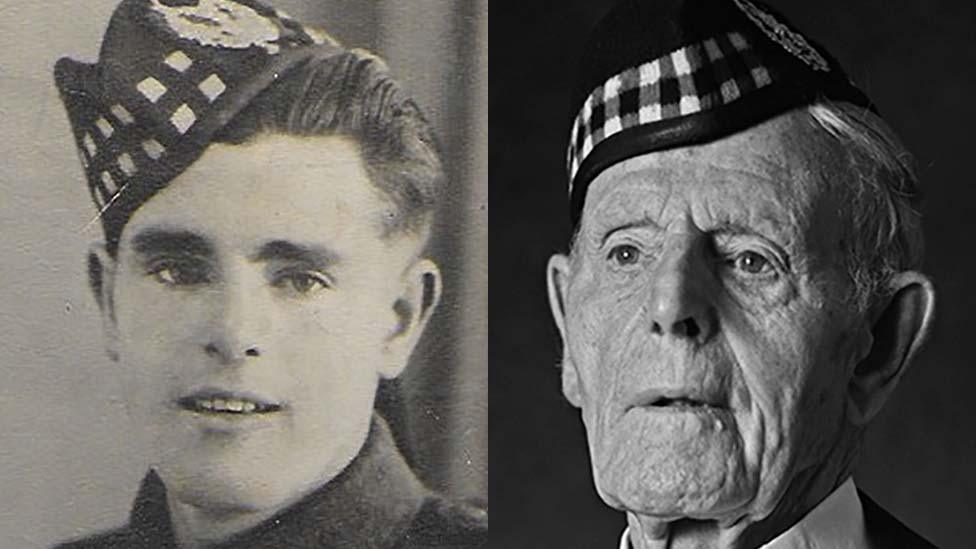I was shot and captured after the D-Day landings
- Published
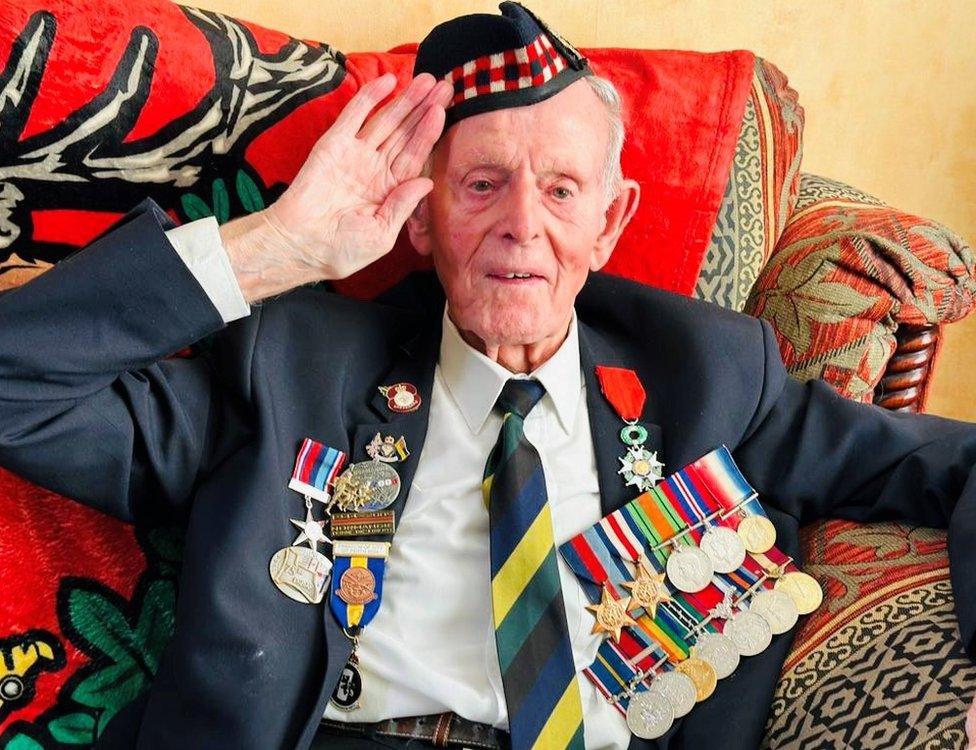
Jim Glennie is now 97 years old
Jim Glennie was an 18-year-old soldier when he faced the terrifying reality of the D-Day landings in 1944.
The Allied forces faced bullets and shells as they launched the largest air and sea invasion in history. Private Glennie saw a dead body, but knew he had to carry on.
However, about a week later he was injured and captured, eventually arriving in a prisoner of war camp on his 19th birthday.
Now aged 97, he has been speaking as part of the BBC's World War Two: We Were There project, where veterans tell their stories for future generations.
When he was called up, Pte Glennie started at the Bridge of Don Barracks in Aberdeen.
"If you weren't fit it was hard, but if you were fit it was alright," he said.
Allied forces began landing on the beaches of Northern France to liberate Europe from German troops on 6 June 1944.
Pte Glennie, from Turriff in Aberdeenshire, was among them as part of the Gordon Highlanders division.
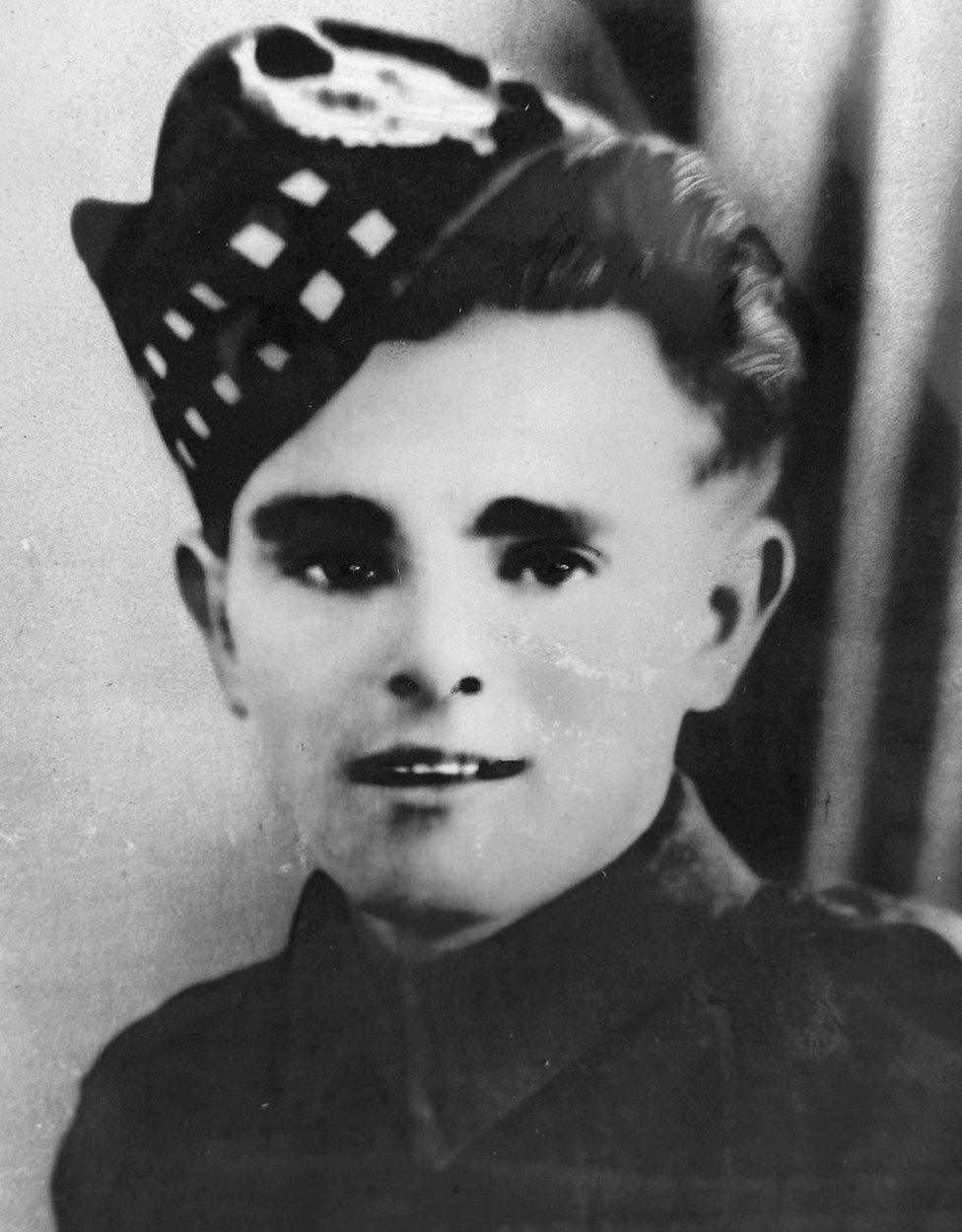
The young soldier was called up at 18

"I remember I was on a big boat," he said. "You had to go over the side and into the landing craft.
"I had two mates who couldn't swim. They said: 'Jim you can't leave me, you'll have to watch us'. I said 'look, I'll go over with one of you and then come back for the other'.
"But the water was just up to the knees, so it was alright. I got on to the sand and I looked down and there was a body floating. He wasn't one of our boys. He was an older kind of chap. He was floating back and fore with the waves.
Jim Glennie was an 18-year-old soldier when he faced the terrifying reality of the D-Day landings
"Boys were getting shot. There were shells and everything. You had to keep your heid doon (head down). You never stopped. You had to carry on."
Despite heavy German resistance, Mr Glennie and his comrades advanced inland.
However, combat was almost over for the teenager.
He said they faced Germans coming at them from different angles.
"We were shooting at them and they were shooting at us," he said. "And eventually I was shot in the arm.
"When I got captured, you had to take off your watch. My mother had given me a ring, they took off the ring. I said 'no, no' but the boy was going to punch me.
"But I was lucky, I got into the hospital."
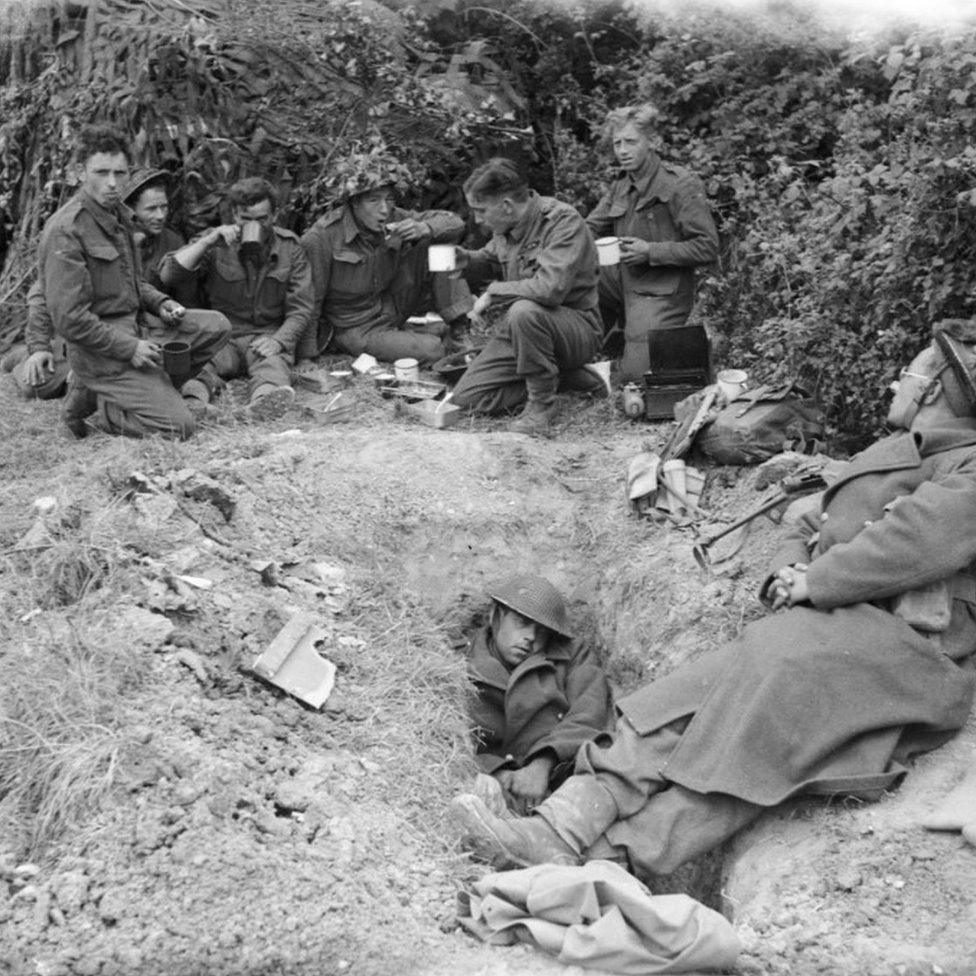
Jim Glennie is pictured sitting side-on at the back holding his drink in front of him

Mr Glennie said his German doctor was "golf daft" and had asked him if he played the sport. The young soldier replied that he played football.
"He used to ask me about Aberdeen. He says 'Aberdeen, there's supposed to be a lot of golf courses'. I said 'oh yes, I can't tell you them all, but I can tell you a lot of them'. He says 'I'm going to come to Aberdeen when the war finishes'."
He does not know if his German doctor did ever made it to Scotland.
What he does know is where he ended up on his 19th birthday - at one of Germany's largest prisoner of war camps.
"I landed at Stalag IV-B," he said. "Somebody shouted 'fit (what) day is it?'
"Somebody says it's the 19th of August. I said 'that's my birthday!' And everybody shouted 'yesssssss!'
"That was Stalag IV-B and I was there until Christmas time. I was lucky though.
"The only thing was you were always hungry, always hungry."
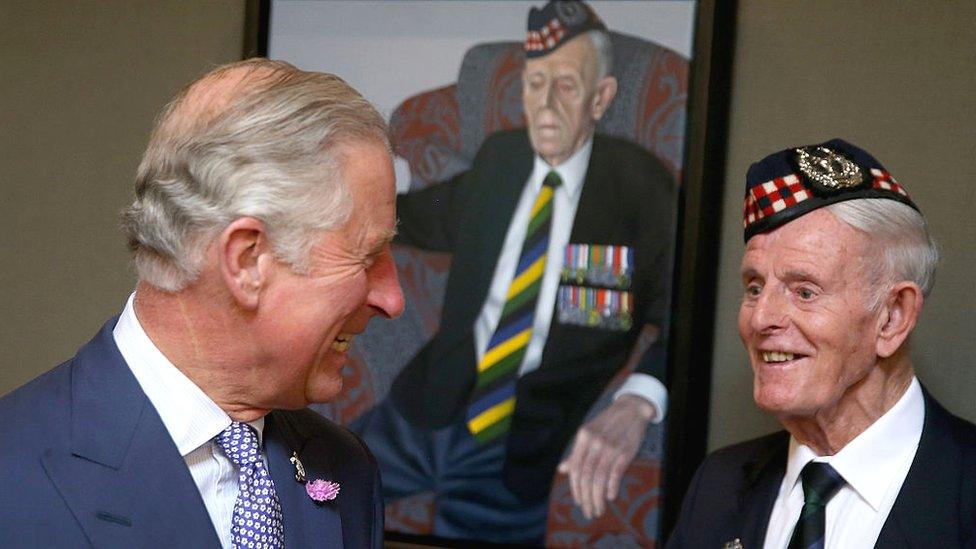
The then Prince Charles met Jim Glennie - photographed in front of his portrait - in 2015.
In early 1945, he was filling bomb holes as part of his prisoner duties when his German captors vanished.
The camp was liberated and he made his way to American forces before being transported home to his family.
"The house was full of folk," he said.
"Folk were just coming round to see me. They'd heard about me being home and came over."
Once Europe was liberated, he was due to deploy to Japan - but the war ended before he was sent.
He later married and had two children.
He volunteers at the Gordon Highlanders Museum in Aberdeen, sharing his story in the hope future generations remember the sacrifices which were made.
Related topics
- Published13 November 2022
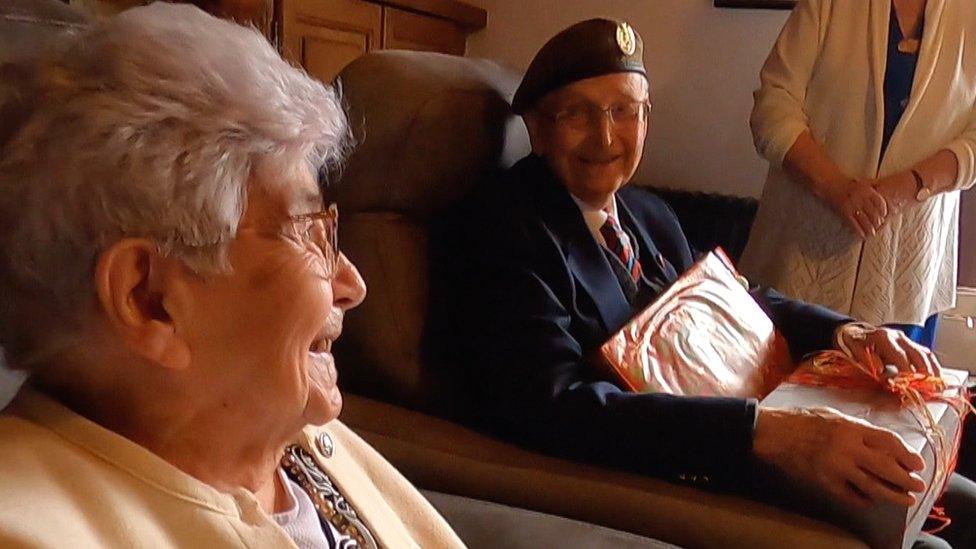
- Published1 June 2019
